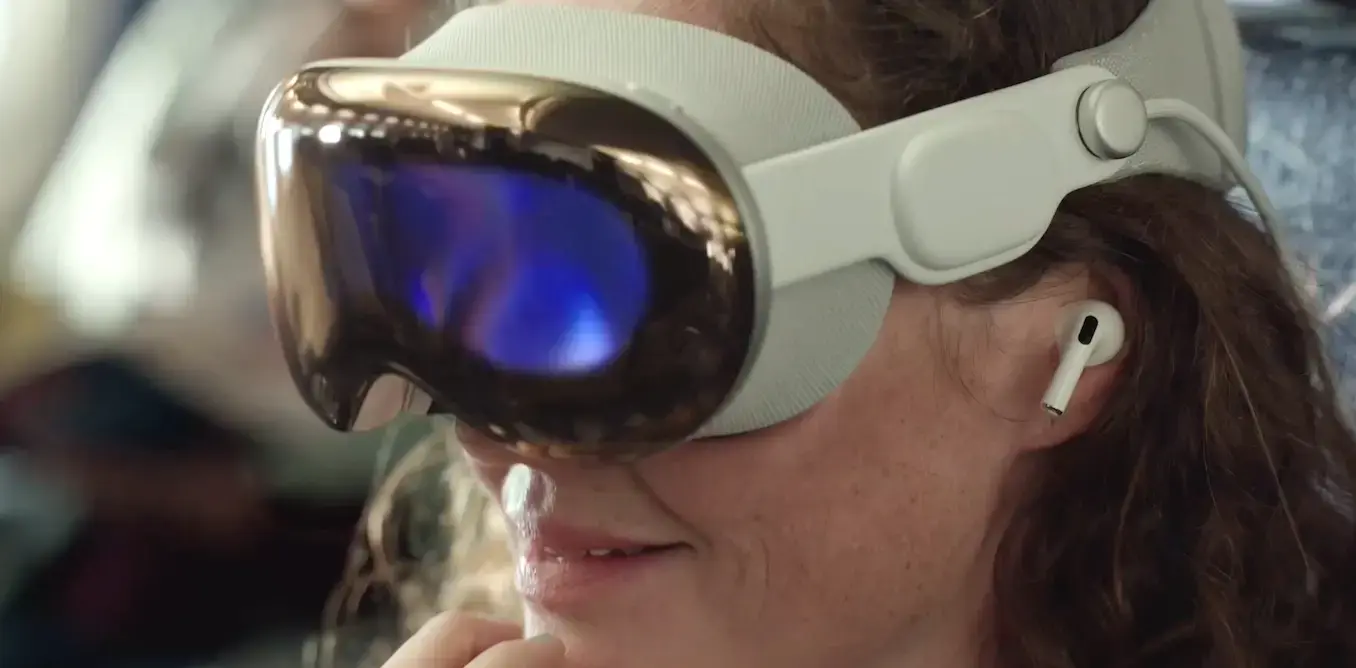Apple Vision Pro is a mixed-reality headset – which the company hopes is a “revolutionary spatial computer that transforms how people work, collaborate, connect, relive memories, and enjoy entertainment” – that begins shipping to the public (in the United States).
The data Apple collects is not “consumer” data like the brand of toothpaste you buy. It is more akin to medical data.
For instance, analysing a person’s unconscious movements can reveal their emotional state or even predict neurodegenerative disease. This is called “biometrically inferred data” as users are unaware their bodies are giving it up.
Apple suggests it won’t share this type of data with anyone.



Spying on our bodies? The device processes data about your face and surroundings in order to function the way it does. This is all processed on-device (it works offline) and is not sent to Apple in any way.
Calling this “spying” is the equivalent of saying a camera is spying on you when you record video with it.
Has it been proven to work offline and that once online it doesn’t upload your offline activity?
As this WaPo article states, they doesn’t even have to upload your activity online to be very invasive. Imagine mapping your room and your house and loading it online to share with your visitors - this will happen. It technically comes within what Apple considers as private - but is still very dangerous. The yard stick to judge Apple by is the case of airtags. They didn’t care about the stalking problem of airtags until there was a huge uproar. And even then, the solution they released was very half-hearted.
What are you talking about?
Despite the fact that GPS trackers without restrictions literally already existed, are unconditionally legal and legitimate to have, and were readily available to bad actors, they heavily limited the functionality out of the gate to limit the benefit to malicious use cases.
Airtags aren’t just GPS trackers. They use the apple devices to ensure coverage. And no, Apple wasn’t too enthusiastic about limiting its functionality until it became a PR disaster. Even the solution now is not satisfactory.
Removed by mod
Yeah. Go ahead and start abusing when you have nothing meaningful to argue with. And like all such unimaginative abusers, you always get it wrong.
Removed by mod
You can’t bill it as imaginary just because you don’t like it. Cases of stalking and spying using airtags are all over the news. And asking for people’s privacy to be respected isn’t anti-tech. You’re just so full of strawman arguments and nothing more.
And it’s rich for you to accuse me of bad faith when all you do to support your arguments are personal attacks.
Uhh, unless you work for Apple, on this product’s team, you’re no more informed about what it is really doing than we are. Imo, people should be concerned about this kind of technology.
@perishthethought
There will be scores of people looking for evidence this new device is doing something Apple has not disclosed. This is how security researchers make a name for themselves.
The engineers on the team building this product will not want to be associated with building something nefarious. These engineers are just regular people. You can find them online and speak with them. They look for jobs at other firms just like we all do. Unless they are being paid so well that they won’t ever have to work again, they can’t ruin their reputations.
If you really believe what this post is purporting, I’ll remind you that you are most likely carrying a device with you every day that has a microphone and internet access. If you aren’t, you are still surrounded by people who are.
The claims this post is making will simply make people tune out or ignore real security concerns.